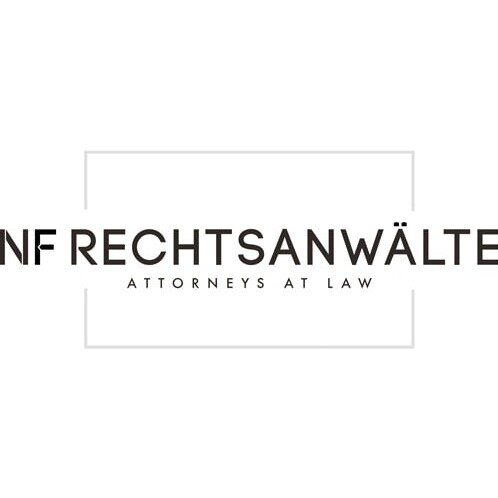Best Energy, Environment & ESG Lawyers in Austria
Share your needs with us, get contacted by law firms.
Free. Takes 2 min.
Or refine your search by selecting a city:
List of the best lawyers in Austria
About Energy, Environment & ESG Law in Austria
Energy, Environment & ESG law in Austria covers the legal framework that governs the production and use of energy, environmental protection, and compliance with Environmental, Social and Governance (ESG) standards. As Austria aims to balance economic growth with environmental sustainability, these laws influence how businesses, individuals, and government entities operate within the country. The Austrian legal system aligns with European Union directives and standards, which means compliance often involves both national and EU regulations. Whether it concerns renewable energy, pollution control, climate action, or responsible corporate governance, Energy, Environment & ESG law plays a vital role in Austria's legal landscape.
Why You May Need a Lawyer
There are various situations where you may need a lawyer experienced in Energy, Environment & ESG law in Austria. Common scenarios include:
- Starting or operating a business that impacts the environment or uses significant energy resources
- Obtaining permits for construction or energy projects
- Compliance with environmental regulations or facing enforcement actions
- Implementing renewable energy solutions such as solar, wind, or hydro projects
- Responding to climate change policies affecting business operations
- Engaging in mergers and acquisitions where environmental due diligence is required
- Pursuing government grants or incentives for sustainable initiatives
- Ensuring adherence to ESG disclosure and reporting requirements for investors and stakeholders
- Handling disputes related to environmental damage or pollution liability
- Participating in public consultations or challenges to new energy or environmental regulations
Legal guidance ensures you comply with all applicable rules, avoid penalties, and protect your interests in complex and evolving regulations.
Local Laws Overview
Austria has a comprehensive network of laws regulating energy, environmental protection, and ESG matters. Key aspects include:
- Energy Law: The national Energy Act regulates energy markets, supply security, renewable energy incentives, and energy efficiency standards. EU directives, such as the Renewable Energy Directive and Internal Electricity Market rules, are also important.
- Environmental Law: The Environmental Management Act, Water Act, Waste Management Act, and Air Pollution Control Act set standards for pollution control, resource management, and conservation. Environmental Impact Assessments (EIA) are mandatory for many projects.
- ESG Regulation: Austrian regulations reflect EU-wide ESG frameworks. The EU Non-Financial Reporting Directive and Corporate Sustainability Reporting Directive require certain companies to publicly disclose ESG information. New EU regulations on sustainable finance and supply chain diligence are also becoming crucial.
- Climate Policy: Austria is committed to the Paris Agreement and aims to achieve climate neutrality by 2040. Decarbonization initiatives affect sectors like transportation, energy and manufacturing.
- Enforcement: Regulatory bodies such as the Federal Ministry for Climate Action and local authorities oversee permits, compliance, and enforcement. Public participation processes allow affected communities to have a say in major projects.
Local laws are detailed and strictly enforced, so professional legal advice is often essential for compliance, especially for businesses and investors.
Frequently Asked Questions
What is ESG and why is it important in Austria?
ESG stands for Environmental, Social, and Governance. In Austria, ESG standards guide how businesses operate responsibly regarding the environment, worker treatment, and company leadership. ESG compliance is becoming mandatory for many companies, especially those seeking investment or operating internationally.
Which authority regulates energy and environment in Austria?
The Federal Ministry for Climate Action, Environment, Energy, Mobility, Innovation and Technology is the main regulatory body. Local and regional authorities also play roles, particularly regarding permits and enforcement.
Do I need an environmental permit for my business?
Many activities require permits, particularly those with potential environmental impacts, such as industrial operations, large construction projects, and waste management facilities. An environmental lawyer can help you identify requirements and manage the application process.
How does Austria support renewable energy projects?
Austria promotes renewable energy through feed-in tariffs, grants, and investment incentives. Projects involving wind, solar, hydro, and biomass are subject to approval and must meet technical and environmental standards.
What is an Environmental Impact Assessment (EIA)?
An EIA is a study required for specific projects to assess their potential environmental consequences. The results determine whether and how a project can proceed. The assessment process includes public consultation and is overseen by relevant authorities.
Are there penalties for violating environmental laws?
Yes, violations can lead to administrative fines, criminal charges, and civil liability for damages. The severity depends on the type of infraction, whether it was intentional, and any resulting harm.
Who can participate in environmental decision-making?
Citizens, NGOs, and other stakeholders have rights to participate in environmental procedures such as EIAs or challenging permits through administrative or judicial channels.
Is ESG reporting mandatory in Austria?
Certain large companies in Austria must publish ESG or non-financial reports in line with EU directives. These reports enhance transparency on environmental, social, and governance risks and practices.
How do climate protection laws affect businesses?
Businesses may need to reduce emissions, switch to cleaner technologies, or comply with energy efficiency targets. Non-compliance can affect access to funding, procurement opportunities, and reputation.
What should I do if my company is accused of environmental damage?
You should seek experienced legal counsel immediately. Your lawyer can help manage investigations, communicate with authorities, ensure compliance, and defend your interests in any proceedings.
Additional Resources
If you need more information or want to seek help, consider these organizations and resources:
- Federal Ministry for Climate Action, Environment, Energy, Mobility, Innovation and Technology
- Austrian Energy Agency
- Environmental Ombudsman Offices (Umweltanwaltschaften)
- Austrian Federal Environmental Agency (Umweltbundesamt)
- Chamber of Commerce and Austrian Business Agency (ABA)
- Environmental NGOs such as GLOBAL 2000 and WWF Austria
These bodies provide guidance on compliance, funding, reporting, and access to training and information on evolving laws.
Next Steps
If you require legal assistance in Energy, Environment & ESG issues in Austria, follow these steps:
- Identify the specific area or issue, such as permitting, compliance, or establishing ESG frameworks
- Collect relevant documentation, such as contracts, permits, correspondence, or governmental notices
- Contact a lawyer or law firm with expertise in Austrian Energy, Environment & ESG law
- Prepare questions or outline your goals for your initial meeting with the lawyer
- Discuss your options, potential risks, and strategies with your legal counsel
- Follow your lawyer’s guidance to resolve the issue, ensure compliance, or pursue necessary permits and approvals
Legal issues in this field can be complex, so early advice from a specialist can save time, reduce costs, and help you achieve your objectives responsibly and lawfully.
Lawzana helps you find the best lawyers and law firms in Austria through a curated and pre-screened list of qualified legal professionals. Our platform offers rankings and detailed profiles of attorneys and law firms, allowing you to compare based on practice areas, including Energy, Environment & ESG, experience, and client feedback.
Each profile includes a description of the firm's areas of practice, client reviews, team members and partners, year of establishment, spoken languages, office locations, contact information, social media presence, and any published articles or resources. Most firms on our platform speak English and are experienced in both local and international legal matters.
Get a quote from top-rated law firms in Austria — quickly, securely, and without unnecessary hassle.
Disclaimer:
The information provided on this page is for general informational purposes only and does not constitute legal advice. While we strive to ensure the accuracy and relevance of the content, legal information may change over time, and interpretations of the law can vary. You should always consult with a qualified legal professional for advice specific to your situation.
We disclaim all liability for actions taken or not taken based on the content of this page. If you believe any information is incorrect or outdated, please contact us, and we will review and update it where appropriate.
Browse energy, environment & esg law firms by service in Austria
Austria Attorneys in related practice areas.
Browse energy, environment & esg law firms by city in Austria
Refine your search by selecting a city.

















